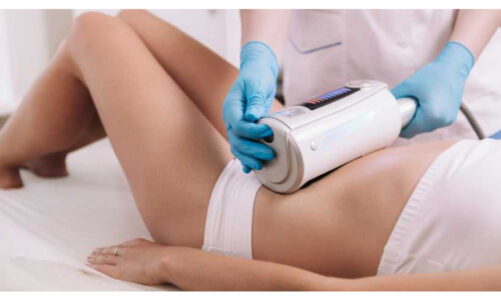In polycystic ovarian syndrome, the ovaries produce an excessive amount of androgens, which are male sex hormones that are typically present in women in modest amounts. The polycystic ovarian syndrome is when the ovaries develop many tiny cysts fluid-filled sacs. It is essential to get the treatment at the earliest if you notice any PCOS signs and symptoms. Cysts, however, do not constantly occur in women with this condition, although they sometimes do in those who do not. Below mentioned are the causes, symptoms, and treatments of PCOS:
Causes:
- Insulin resistance:
A hormone produced by the pancreas is insulin. It permits the utilization of sugar, the body’s main energy source, by cells. Blood sugar levels may increase if cells develop immunity to insulin’s effects. Your body may produce more insulin due to an effort to lower the blood sugar level. Your body may produce too much androgen if you have too much insulin. Ovulation, the process through which eggs are released from the ovary, may be difficult for you. Dark, velvety patches of skin in the armpits, groin, or under the breasts are one indication of insulin resistance.
- Low-grade inflammation:
In reaction to an infection or damage, white blood cells produce different chemicals. Low-grade inflammation is the term for this reaction. The polycystic ovaries in persons with PCOS create androgens as a result of a sort of chronic, low-grade inflammation. This may result in issues with the heart and blood vessels.
Symptoms:
Around the time of the first menstrual cycle, PCOS symptoms frequently begin. After having periods for a while, symptoms can occasionally appear later.
- Irregular periods:
A common symptom of PCOS is having few or irregular menstrual cycles. The same goes for periods that last longer than they usually do or for several days. You might have fewer than nine periods each year. And those intervals could be spaced apart by more than 35 days. Getting pregnant could be challenging for you.
- Too much androgen:
Excessive body and facial hair may come from high androgen levels. Hirsutism is the term for this. Male-pattern baldness and severe acne can also occur occasionally.
Treatment:
The management of your concerns is the primary goal of PCOS treatment. This could involve obesity, hirsutism, acne, or infertility. Depending on the condition, medication or lifestyle adjustments may be necessary.
- Progesterone therapy:
Your cycles can be regulated, and you can avoid endometrial cancer by taking progestin for 10 to 14 days every one to two months. It is one of the best treatments for PCOS. Progestin medication will not prevent pregnancy and does not increase androgen levels.
- Lifestyle changes:
Your healthcare professional may suggest a low-calorie diet and moderate exercise as a way to lose weight. The PCOS meds your doctor advises may work better if you lose weight and may also assist with infertility. Your medical professional and a qualified dietician can choose the ideal weight-loss strategy.
Final thoughts:
The points mentioned above are the causes, symptoms, and treatments for PCOS. You should visit the best hospital to get better treatment. The best treatment for PCOS will help you recover from the problem soon. You should follow the proper medication prescribed by the doctors.




